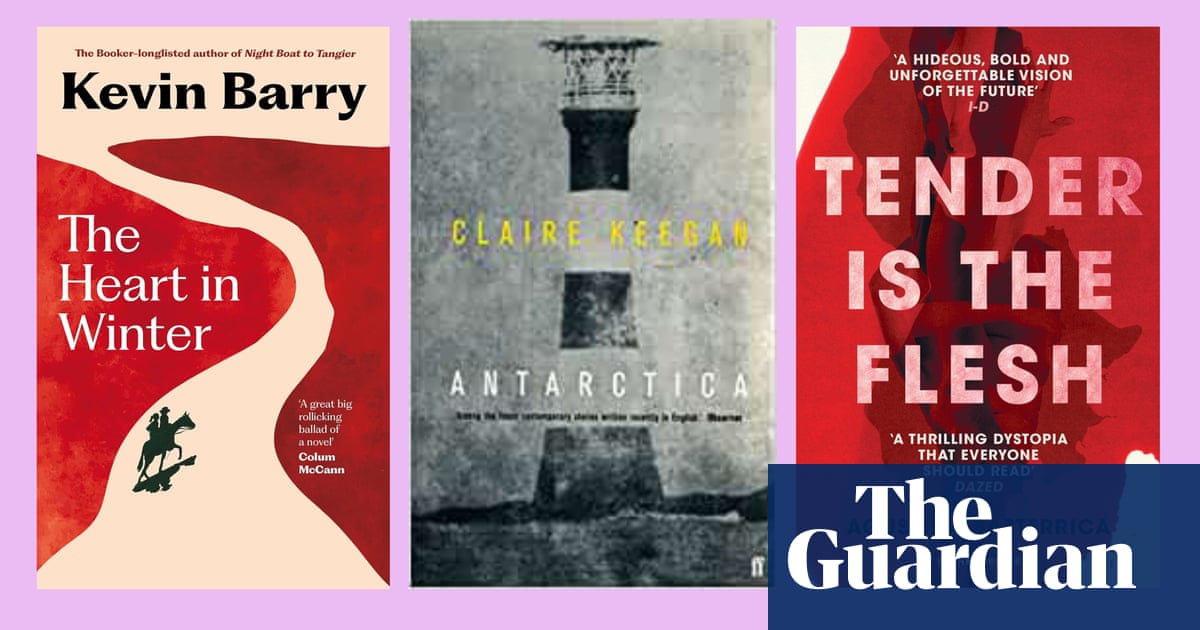Mark Haddon, author
I have a longstanding beef with literature which shies away from the truly dramatic, as if keeping the cameras rolling during the sex scene, the bank robbery or the car crash is the preserve of genre fiction. Tender Is the Flesh by the Argentinian author Agustina Bazterrica, translated by Sarah Moses (the original title “Cadáver exquisito” – Exquisite Corpse – is even better) takes a blood-spattered rotary saw to that prudish convention. It is set in a dystopian future where, after a plague which makes other animals dangerous for people to eat, some humans are bred for their meat. The protagonist Marcos manages one of the human slaughterhouses. To say I enjoyed this would be the wrong word, but I was utterly gripped and it was thrilling to see a literary novel kicking over the traces so gleefully.
If I had been asked – which I wasn’t – I would have given the International Booker prize to Ia Genberg for The Details, in which we come to know the narrator, whom we never see directly, through vivid portraits of four people with whom she’s had deep and formative emotional relationships throughout her life. The translation from the Swedish by Kira Josefsson is so good that I kept underlining passages so I could reread them later.
Currently I’m reading The Employees by Olga Ravn, translated from the Danish by Martin Aitken, for the third time. It’s an utterly sui generis masterpiece which purports to be a series of interviews with human and humanoid workers on a ship orbiting the planet New Discovery. It’s sci-fi, it’s poetry, it’s a troubling mystery, it’s a critique of the modern workplace and a study of the function of art. It is also, for me, one of those landmark novels which opens up a whole new area of the literary map, and I suspect I’ll be reading it many more times.
Sasha, Guardian reader
I have been reading Claire Keegan’s short story collection Antarctica. It is the second book I’ve read by Keegan: she is such a sharp writer who does not waste words. I love the fact that the stories in Antarctica are so sinister; there is a great sense of foreboding.
Xan Brooks, critic and author
My summer reading has involved two adventure stories of sorts, each brilliant in their way but each so distinct from the other as to almost count as a different species. Kevin Barry’s The Heart in Winter is a rambunctious lovers-on-the-run picaresque, cantering from 1890s Montana to California on a stolen palomino, via a scenic route that’s studded with gothic grotesques and clownish oddballs. It’s a novel that plays like an unruly circus, with Barry as the barker and every line salted and pretzelled to within an inch of its life. Robert Altman, I think, would have made an excellent film adaptation.
Where A Heart in Winter tacks west, Briefly Very Beautiful flees north. Roz Dineen’s superb debut novel is cool and measured where Barry’s is gaudy and garrulous. Briefly Very Beautiful is a gripping tale of everyday survival in a climate-breakdown Britain that’s probably around the next bend. The infrastructure is collapsing, the suburbs are combusting, and so Dineen’s heroine lights out for Scotland with her kids, seeking milder weather and safe havens that turn out to be either mirages or traps. It’s become a cliche to point out that all good science-fiction tales are actually about the here and now. But Briefly Very Beautiful moulds itself so snugly against the real world that it reads like a message posted back from next year.
after newsletter promotion
The Clocks in This House All Tell Different Times by Xan Brooks is published by Salt. To support the Guardian and Observer order your copy at guardianbookshop.com. Delivery charges may apply.
Duncan, Guardian reader
Peacemakers by Margaret MacMillan is an engaging, thorough and detailed account of the peace negotiations in Paris in 1919. It contains fascinating character sketches of the main players and a depressing narrative of the bickering, prejudice and error-strewn process. It also explains a great deal of the conflict that has happened in the past 50 years: Israel-Palestine, the breakup of Yugoslavia, the division of Czechoslovakia and, of course, how the seeds of discontent were sown to lead up to the second world war.
